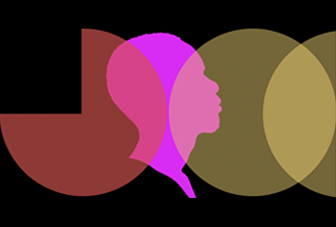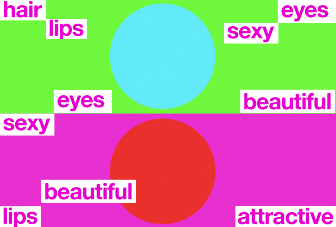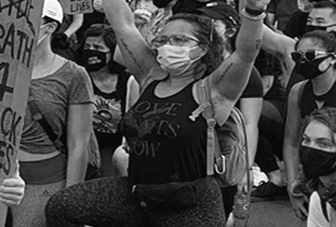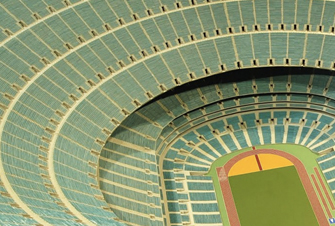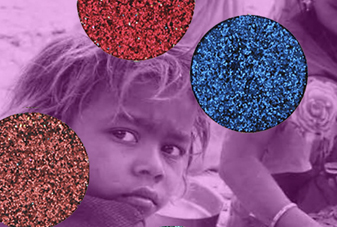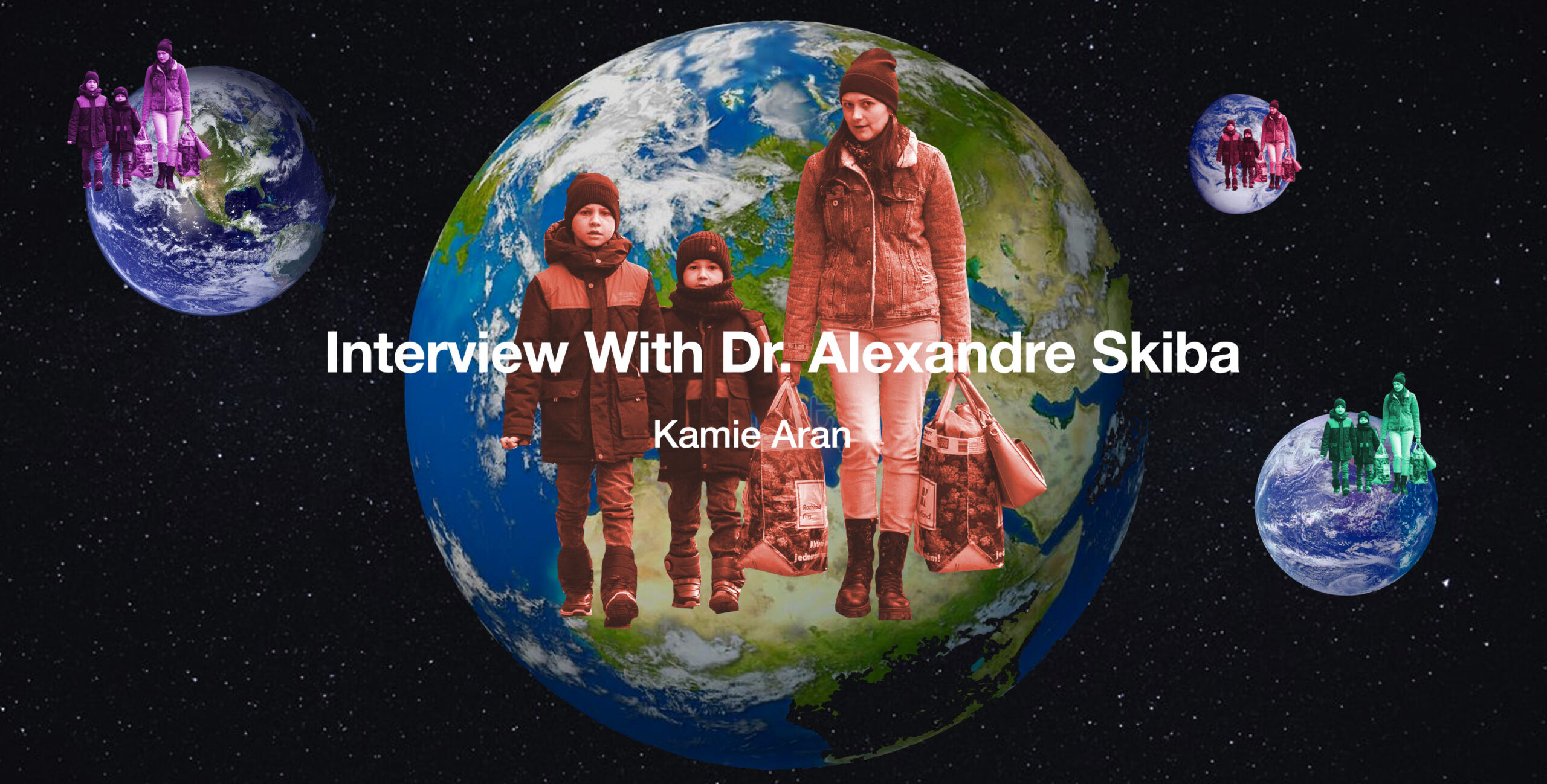
To learn more about the war in Ukraine, what might happen next, and the war’s implications for teenagers around the world and the global economy, I interviewed Dr. Alexandre Skiba to hear his perspective. Dr. Skiba is originally from Ukraine and is an Assistant Professor at the University of Wyoming in their Department of Economics.
The war in Ukraine had begun ten days prior to the date at which this interview was conducted.
Could you please share about your personal and professional background?
I was born in the west of Ukraine in 1977 and I went to school under the Soviet Union so I experienced the full spectrum of education in the Soviet Union. I experienced the Soviet Union during my formative teenage years so for part of my life I wore a red tie. All schoolchildren were supposed to become the pioneers, which is the first stage of indoctrination towards Communism so everyone had a red tie to symbolize being part of the big red flag of the Soviet Union.
In 1991, the Soviet Union collapsed. It was an interesting time because the adults had their ideas, the younger kids didn’t care, but for the teenagers - I was fourteen - that was the time when we were saying: “Wait, hold on, are we an independent country? Yeah, we’re speaking Ukrainian. I always spoke Ukrainian, my grandma speaks Ukrainian, I called myself Ukrainian, but now we can be an independent country.” Then we were learning a lot about history and becoming aware of bigger things that were happening around us.
In 1993-1994, I went to a one year exchange program in Munich, Germany that was funded by the Ukrainian Diaspora. I graduated from the school in Germany, came back to Ukraine, went to university in Blythe, California for an exchange program here in the United States, came to Oshkosh, Wisconsin in 1997-1998 and went back, graduated, then tried to apply for graduate schools. I wanted to study Economics on a graduate level, and at that time it was very hard to do in Ukraine due to bribery and collapse in the educational system so I couldn’t afford it. So I applied to some schools in the United States and attended and graduated from Purdue University in 2003 with a PhD in Economics.
I am currently working at the University of Wyoming. Research-wise, I focus on international trade and quantitative analysis.
What is your perspective on the war in Ukraine? What can you share about the war and its root cause?
There was a big build-up on the Ukrainian borders by the Russian military before February 24th and it wasn’t clear what their goals were. On the twenty-fourth, Putin gave a speech where he said that he will conduct a special military operation and they started shooting cruise missiles and rockets across the entire territory of Ukraine. My hometown, in the west, was hit. They shot towards airports. The Pentagon, United Kingdom, and Ukrainian intelligence thought that Russia wanted this to be a limited engagement that would be completed in two to three days. So I think that they thought that Russia would roll in and Ukrainians would say “You seem to have stronger military power so we’re just going to take you as our leader.” That was a massive miscalculation on their part because even in the towns that they’re now claiming that the Russians have occupied, they really just have some military in the center of the city. The post is Ukrainian, the police are Ukrainian, and the firefighters are Ukrainian: they’re Ukrainian people, governed by the Ukrainian administration, and paid by the Ukrainian budget. Russia didn't bring enough people to actually impose their own police. Because Russia’s military advance has been stalling, and frankly, failing, they resorted to discriminate bombing of the residential areas and that’s hard because the two towns where there are currently big fights and that they’re bombing, the towns of Tetiiv and the town of Kharkiv in the north, are big towns.
In the news, you saw the big military convoy that was stretching forty miles. Part of the reason why the Ukrainian military is not too concerned about them is that they’re very far from their supply - they’re moving very slowly, they can’t advance, and they’re running out of food and fuel. I think that the goal is to capture areas adjacent to Russia or where they can easily enter without long-lasting supplies. And that’s where the tragedies started happening. They are carpet bombing and hitting hospitals. Now there’s more and more evidence of that so they appealed to the International Court for Human Rights and they’re doing investigations.
Right now, Russia is killing civilians because they’re weak. It’s a big military, so they can send a lot of troops, but that’s clearly a sign of weakness because the Ukrainian civilians don’t resist. We’ve seen this in other wars such as the Syrian war: trying to suppress a particular population and destroy infrastructure so that people have to flee, people are in poverty, there’s death, and there’s broken families. At this point, I think that’s Putin’s plan: to just destroy Ukraine as a state. This plan is not going to work because Ukrainians fought against the Soviets until 1962. World War 2 ended in 1945, and, until 1962, even with all the controls from the Soviet Union, there were organized guerrilla units in the western part of Ukraine fighting against the Soviets. So I think that Russia is going to cause a lot of damage, but historically we have already seen this in World War 2. Also, Ukrainians have been preparing for this since 2014 when Russia took over Crimea.
We don’t know now exactly what triggered this invasion at this specific moment, the threat was always there, but what triggered it may have been Ukraine trying to get close with the West in terms of joining the European Union and considering joining NATO.
What’s very worrisome is that Putin openly follows the philosophy of Ivan Ilyin, a Russian fascist philosopher of the early 20th century. Ilyin is very dangerous: the philosophies that are very dangerous are the ones that give divine rights to a group of people because then you can’t argue against it. So that’s what Ilyin’s philosophy is, he has this idea of the “Russian Spiritual Space” which is very vaguely defined as a general force that’s emanating from Russia. This idea is scary because it’s very vague: it says that Russia is righteous and that’s why we want to project this force. Putin has been appealing to this. For example, in his speech the week before the Russian invasion, he said that we’re going to protect the Russian Spiritual Space. If you say, “I’m going to engage with this country because of this particular fact”, then you can have a negotiation or argue about that fact, but if you’re trying to protect a spiritual space, it’s very hard. I think that that’s insane on a level that we haven’t seen since Hitler, I just can’t understand it. I tried to read Ilyin, read about him, and read some historical documents, but it’s just straight-up fascist philosophy - these are not my words - that they’re following.
I think that one thing about the historical context that a lot of people might not understand is that the Russian civilization mostly came from the territory of Ukraine. So when we were building churches in Kyiv (that still exist by the way), Moscow didn’t exist and it wasn’t even a settlement, it was just a swamp. Kyiv already had a rudimentary sanitation system and a court of law. Russia appropriated that area, that idea of “Rus”, but they understand fully that it came from the territory of Ukraine. We are the historical cradle of Putin’s crazy idea of the Russian Spiritual Space. There’s this historical unraveling and rethinking of “well, if you stop here that’s Russian but if you stop here that’s Ukrainian”. But you have to stop pretty early if you want to twist it into Russian favor. So Putin is talking about the last hundred years under the Soviet Union, but if you go a little bit further it’s Ukrainian and then you go a little bit further and it’s Russian and you go a little bit further and it’s nobody’s because it’s just people moving on the north side of the Black Sea to get to Europe to move along from Northern Africa as the civilization spreads. So where do you stop?
What do you expect will happen next in Ukraine and on the global stage?
The Ukrainian military is not going to give up easily and Ukraine has been preparing for this invasion since 2014, so they’re better prepared, they’re better equipped, their tactics are better. The problem is that the Russians have more military and they just have more guns, rockets, weapons, and planes.
There are very asymmetric losses now, the Russians are losing so many more people. During the bloodiest year of the Vietnam War (1968) for the U.S. military, the U.S. military lost 17,000 people. By some counts (depending on how you count, we'll probably know these numbers in a month), the Russians already lost up to 10,000 soldiers in 10 days. Russia is losing a lot more people than Ukraine because they’re sending them very unprepared. Russia has the military advantage because of their military’s size, not because of their training or will to fight.
I think that Russia will try and continue to take a city at a time. In other words, move on to one city, bomb it, move on to the next city, bomb it, and so on. They came after the big city of Kharkiv and they’re just bombing it, they’re essentially leveling the city. They’re going to keep doing that, so the humanitarian loss is going to be huge and is just going to increase. I’m assuming that at some point Ukraine will change their tactics and it might be completely guerilla warfare because Russia doesn't hold the cities. If you look at the map, and see Russia advancing, it’s not that when you go into an area that they say they’re occupying there are Russian soldiers everywhere. They advance, capture the town, and move on. So it’s captured, but it’s not really occupied. I think that’s going to keep happening. They’re just going to go to the next town, to the next town, and just destroy them one by one. And they’re already doing it. They just bombed two additional towns that they didn’t bomb before.
I am convinced that Putin’s not going to stop there. He’s already threatened France, Estonia, and Lithuania, which are NATO countries. Putin gives a few speeches, but if you listen carefully he’s announcing his plans far in advance. In one of his speeches one week ago, one of the things he said at the end was “and by the way this is the right time to remove nuclear warheads from eastern and western Europe”. This is not up to him. He can make the request, but it’s not up to him - he’s basically telling other countries what to do. So I don’t think he’s going to stop. I don’t know if he’s going to bomb Poland or other adjacent countries, but he will definitely put pressure. For example, if Ukraine falls, then nuclear warheads or other weapons will be on the border with Poland, that I don’t doubt. Or he’s going to take the same military that he was using to attack Ukraine, regroup, and then put them on the border with Poland, Estonia, Lithuania and try to push his agenda of this Russian space.
Most wars have been fought for very specific areas, and Putin’s just trying to expand an idea, which is very hard to predict. There’s this Russian Spiritual Space, but it includes countries in Asia. I understand Ukraine and Russia sharing some common history, but what about Chechnya, how is that part of Russian space? They don’t speak a language that’s even closely remote, they’re not close in terms of their religion, how is that part of Russian space? So it’s clearly a dead idea. Because of that, I don’t think that Putin’s going to stop with Ukraine and I really wish that the West recognized it sooner. Because history is repeating: before World War Two, Poland had agreements with the United Kingdom that they would help if Russia or Germany attacked. But Germany attacked and took over part of Poland and the Soviet Union took over the other part, and the world looked away. If you look back to the pre-World War Two thinking, it’s the same thinking that we’re going through right now. For example, a current option is a no-fly-zone that would save tens of thousands of lives, and we’re not imposing it because we’re saying that that will bring our forces in contact with Russian forces, and we don’t want that. That’s understandable, but that’s also exactly the same logic that Putin is relying on. Putin is just going to keep encroaching, and every time there’s any possibility of contact, we will just retreat and say “you know what, just do what you need to do: you need to kill a few thousand more civilians, just go ahead, it still stays in Ukraine, we’re not worried about that”. But history shows it never does, it spills, the regional conflicts ensue.
In terms of nuclear weapons, I don’t think that Putin would use nuclear weapons and I think that there are enough people in his government that would not let him use them. But whether he would use them or not, that same concern will exist when he has his troops on the border with Poland and then on the border with Germany. He can just roll out nukes and request that they remove all foreign troops from their soil (that’s something he’s requesting). Currently, he has no power to say that because he doesn’t have Ukraine, his forces are far, they’re fighting. But Ukraine falls, he regroups, moves on further, and it’s going to be exactly the same game theory. I think that this is going to be a rude awakening, this is going to be a far bigger war than what we’re thinking right now. Because we’re kind of shielding it. There’s going to be more suffering and the effects will be further reaching - whether economically or with direct involvement of forces - than what we’re seeing now.
To sum it up, I expect that what will happen next in Ukraine and on the global stage will include more suffering for Ukrainians and the Russian military will lean on their advantage and it’s just a question of how much human loss the Russian society can sustain. In the coming days, there’s going to be a lot of shelling of cities and advancing military and I don’t think that the U.S. or NATO is going to engage. After World War Two, we used the phrase “Never Again” for the Holocaust and genocide in general, and what we’re seeing right now is “Again”. And we’re just letting it go for the same reasons as we did before World War Two.
What do you believe will be the economic implications of this war in the short term and long term for Ukraine, the U.S., and the world overall?
There’s a really big fork in the road here: do we contain Russia? Russia is not a very large economy, it’s only about 2% of the world's Gross Domestic Product (GDP). Furthermore, that economic power is coming from oil and gas. So if we switch away from oil and gas, they don’t have as much power. They don’t have technology, they rely on foreign imports for their technological products, they haven’t developed their industry. In terms of long-term development, take out oil and gas and they’re a third world country. But put that back in and all of a sudden you can develop industry, new weapons, and engage in space programs and support these multi-million-dollar planes and yachts for their oligarchs that are being captured right now all over the world.
In trading, the basic idea is that you sell something to the country and they buy something from you. So what we’ve been getting from Russia is oil and gas, but the U.S. doesn’t buy a lot of oil and gas from them (we buy most of our oil from domestic production, Mexico, Canada, and Venezuela). Oil is a commodity, a good that is traded on a truly global market. What I mean by that is that let’s say I ask you what’s the price of a car and you say “what do you mean by the price of a car? Is it a van? Is it a used car? Is it a Volvo or a Ford? What are we talking about?”. But if I ask you the price of oil, we have an answer: it’s $114. We have an answer to this because there are organized markets where traders come and they agree on a price. That price is in a specific place and you have places in the globe where the prices are determined by the traders, by supply and demand. Those prices are affected by the global supply, so in other words China demanding more gas to fuel the cars that their middle class is buying will affect our price of gas because now the price of oil in the global market has gone up. Then the trading happens as the companies that are buying and selling agree on a price in one place and then that’s the price that exists in the globe and that affects our price in the gas station. That’s why President Biden noted that there was going to be an effect at the gas pump and we’re encouraging our partners to produce more oil so that supply goes up and price goes down.
So a big effect of this war is that we’re going to either have to pay more at the pump or figure out how to get oil from other sources. Another big effect is that Russia will no longer be a big market. That’s why all companies moved away from the Russian market except for Coke. The war will also cause disruptions because the world economy is so interconnected now (we learned about this during COVID) and Russia is taken out and Ukraine is under attack.
I think that there’s also going to be a very strong attempt to substitute away from Russian oil and gas because they use that for military purposes. So there’s going to be massive substitution away from Russian gas and oil, and as a result, nuclear energy is going to become bigger in Europe and there’s going to be a quicker substitution away towards greener energies.
Additionally, once the war starts threatening Europeans a bit more, Europeans are going to start having to spend more on Ukrainian immigrants because they decided that they will help immigrants and refugees from Ukraine, and they are helping tremendously. So in other words, the Ukrainian immigrants who go to Poland are just taken aback by how warm and well they’re received, how people are giving them all kinds of support with food and lodging and medical care. Also, Europeans are now spending more on defense, so there’s going to be a shift again into developing more weapons, better weapons, and better anti-rocket systems. Small countries will try to find ways to defend themselves against bigger invaders by coalition-building, building better rockets, and building defense systems.
How do you believe that the war will impact teens in Ukraine and around the world in the short term and long term, specifically in terms of their mental health, socially, politically, and economically?
In Ukraine, I think the biggest impact is the loss of life. Many teenagers are going to be - and have already been - killed by bombs. In the areas that Russia bombs and occupies, there will be limited access to healthcare. In the long term, education will be impacted because some of the first civilian buildings that were targeted were schools. I’m not worried about that too much though because we [Ukraine] have a very good education system and COVID also helped with transitioning to online and remote learning so I think that we’re going to recover from that very quickly as soon as this war is over. There will also be a loss of basic things that teens engage with every day: school, medical care, food. A lot of these places don’t have access to food because the Russian soldiers are blockading the cities so that there’s no food coming in or out.
In terms of the psychological effect of the war on teens in Ukraine, I can’t even imagine because the military operation that they’re seeing isn’t easy and isn’t something you can unsee. My daughters are hearing about it in the United States and they’re having a hard time processing it. But when you’re there and your father goes to fight Russians that’s a very different level of emotional stress. If you and your mom in the middle of the night just pack a bag and go to a different country, that’s displacement and adjustment that you need to figure out. I think that a lot of Ukrainian children are going to have to grow up faster because now they’re worried about things that are related to their survival that kids don’t normally have to worry about. There are also going to be a lot of households with single parents or without parents because one or both of them died in the war.
In the U.S., I think that history is going to become more relevant. Now all these ideas are coming back from the history books. Because if you ask a question like why did Russia attack Ukraine, the answer is not in today, the answer is in the 100 years of history. There’s also probably going to be more conversation with parents about this war. I think that my generation will have to answer to the kids in a few years saying “what have you done?”, because I think that teenagers and the next generation will hold us accountable for what we did now to stop this. This is the next genocide and the next big event that’s going to shape history, it’s one big country demolishing another country that’s democratic and developing and on the border with the European Union. So I think that one of the things that us adults have to consider right now is: when the years go by and history is judging, we’ll have to answer to our kids what we did and what we didn’t do because that’s what happened after wars in the past.
The last thing that I think we’ll see happening, and this is really encouraging, is that teenagers are more prone to activism. They’re prone to support a cause because of an intrinsic desire to support, they try to do what’s right. I think it’s that that’s causing a lot of these companies to move away from Russia. Even though that activism is mostly within the United States, it’s spilling into the global arena and I feel that it’s going to become more global.
What role can people around the world play to help Ukrainian citizens (teens in particular) during the war? What about the role that teens around the world can play in particular?
I think that information is the biggest tool right now because Russia is engaging in some very blatant propaganda tools. Even though in the U.S. there’s a lot of biased media, at least when you turn on the TV you can choose to hear from different reporters’ descriptions of an event and journalists don’t get jailed for calling a war a war - that’s the latest in Russia, because it’s not a war in Russia. For the Russian government, it’s called a special military operation. So if you call it a war, that’s up to 15 years for “spreading Western propaganda”.
The Ukrainian government has put up websites with the names and phone numbers of the soldiers that died and are prisoners of war in Ukraine. So if you’re Russian - and Russia’s saying that there’s very minimal losses - and if you think that Ukrainians are lying, then look at their website and say “hey, there’s a guy you list there who is actually alive and well” or “you listed a person who’s not even a person”. So it’s very easy to discredit Ukrainians if we were making this up. Instead, Russia blocked that website. And if you are, for example, a soldier’s mother who is missing their son or is asking these questions, you can be prosecuted for “spreading anti-state propaganda”.
So I think that the information - getting information, being critical about it, and asking the adults essentially “hey, what are we doing about this” - and raising awareness are very big issues as in let’s talk about it and educate ourselves, because teens don’t have money so it’s hard to put it on them to donate to a cause. It’s not easy because TikTok is addictive, and I think part of it feeds spreading some of the information about the war in Ukraine and the suffering and the implications for European countries, but sometimes we need to step out of it and actually read an article with pages and words.
I think that the big issues are information, the spreading of information, and the asking for accountability because teens are not voting but they’re about to vote. It’s just a matter of time and it’s vital to learn about this war and just hope that 1) it doesn’t happen again and 2) it doesn’t happen in other places around the world. So honestly the only thing you [teens] can do is get educated and put pressure on adults based on what you learn.
Other Pages

Interview with Dr. Alexandre SkibaProject type
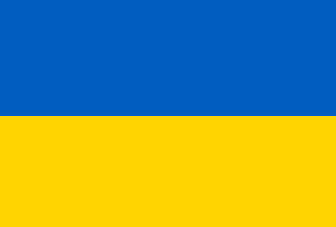
The Return Of The HistoryProject type

A Dead DreamerProject type

NothingProject type
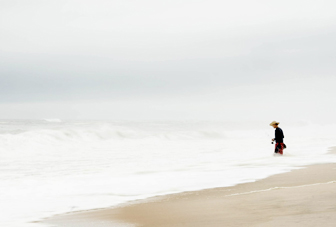
ObsessionProject type

A Person & Their TribeProject type
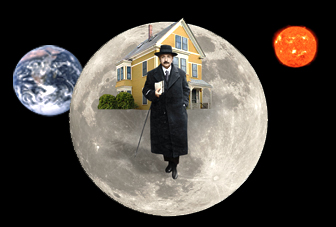
Education From a DistanceProject type

Coffee, Twitter, and RevolutionProject type

When I Turned SeventeenProject type
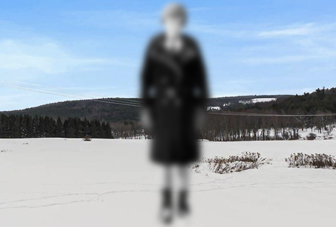
A Winter of IsolationProject type
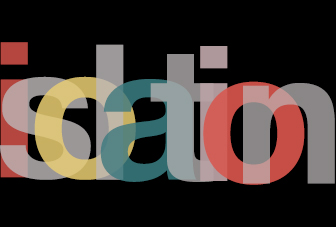
SpeechProject type
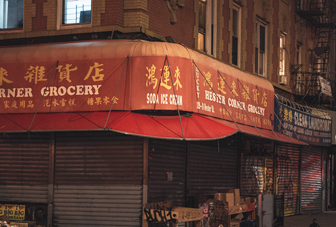
Desolation's PerseveranceProject type

CoraProject type
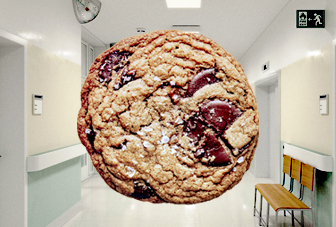
Hospital CookiesProject type
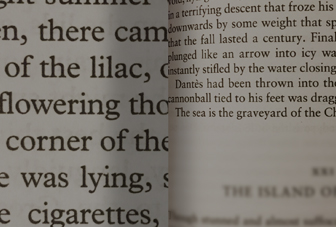
A Fragmentation of WordsProject type
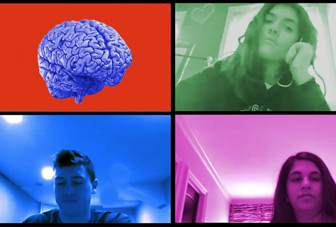
The Stress of Remote LearningProject type

Sweet SixteenProject type

WordsProject type

A Christmas CarrollProject type
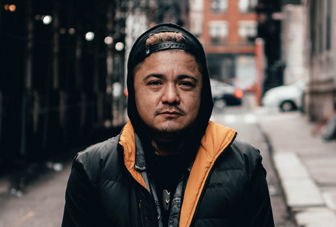
New York City 2020Project type

Qualified Immunity: Broken DownProject type

What Science Tells Us About Gender?Project type
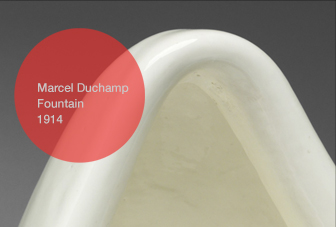
Beyond The Bathroom StallsProject type
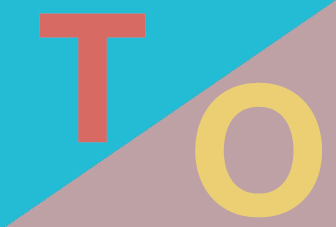
1 am thoughts on Trutharticle
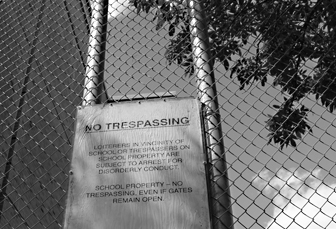
Brooklyn, NY During COVID-19Photo Gallery

AboutAbout Page
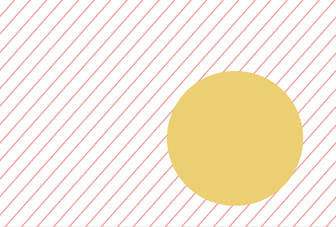
Submission InformationProject type
